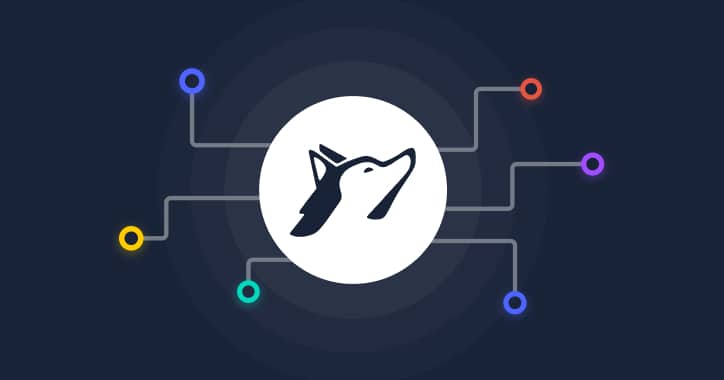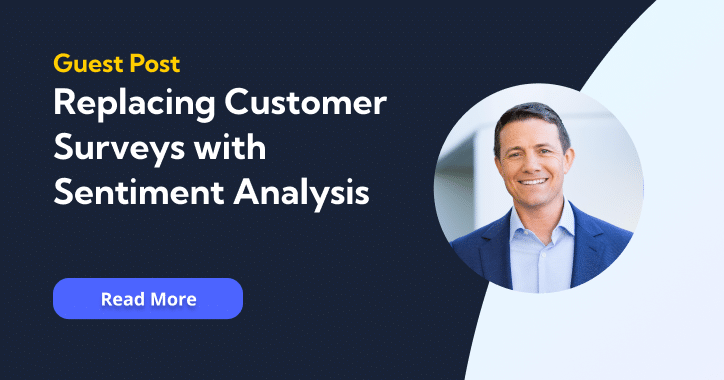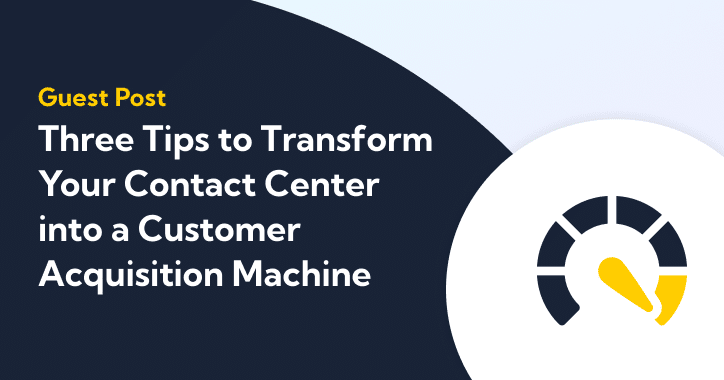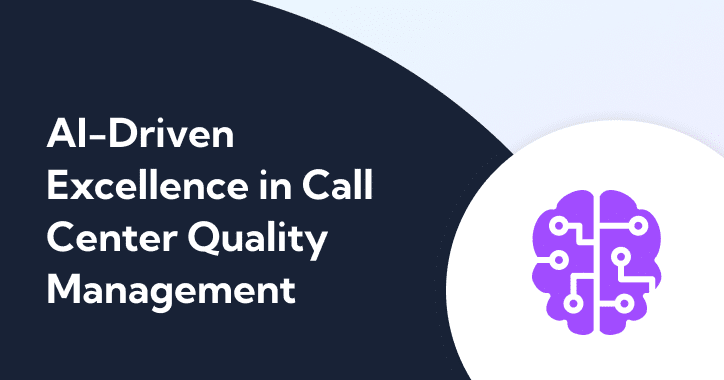This may sound controversial, but your tenured agents know better than you.
They have accumulated a wealth of knowledge about how to do the job, how to take care of customer concerns, and shortcuts to work efficiently. They do this day in and day out.
And for many companies, they are an untapped resource that can and should be leveraged to improve results for everyone because the most tenured and experienced agents often know things that managers don’t (or may have forgotten).
This knowledge and experience can help you in a variety of ways, including improving center operations and call outcomes. Let’s take a look at exactly how tenured agents can elevate your operations and some strategies to help you tap into this vital resource.
Help Design or Refine Playbooks
Top-performing contact centers recognize the value of their most senior agents and look to their feedback to design winning conversation playbooks and test new strategies.
For our Anti-Script report we asked the participants in our study to rate, on a scale of 1-5, how involved they were in writing their scripts. Our analysis found that the more agents are involved in writing their call center scripts, the more they’ll follow them. 64% of agents wanted to change something about their script — those who reported the lowest involvement in script writing were the most likely to want to change everything about it, and those who wanted to change nothing at all had the highest rate of involvement as a group.
No matter how solid your playbook is, there’s often room for improvement. Seasoned agents know where playbooks can use a little tweak to make them more effective. This group is also best suited to test out new approaches to see if alternatives will work better.
In some cases, you may find that two tenured agents will have completely different approaches and say different things to customers on calls. If they are getting the results you need, it’s worth taking both approaches and A/B testing them with the rest of the team. Either way, they are a great resource for supervisors and managers to refine playbooks.
By soliciting feedback and incorporating changes into your workflow, you’re showing that you value agents’ input. This may encourage them to share ideas for other areas of improvement as well.
Passing On Shared Knowledge
Companies lose a significant amount of productivity by failing to share knowledge. According to the Workplace Knowledge and Productivity Report, companies can lose millions of dollars annually in lost productivity. The cross-industry study showed that 42% of institutional knowledge is not codified within organizations. It’s learned on the job for specific roles. Yet, when employees leave, that knowledge is not passed on, leaving coworkers unable to perform at similar levels.
By capturing that knowledge and applying it to your call center coaching guide, you can build a better, higher-performing organization, incorporating that experience into your playbook and standard operating procedures.
Reducing Agent Attrition
We all know that one of the biggest challenges with managing contact centers is attrition. Just because your tenured agents have been with you the longest, that doesn’t mean they won’t look elsewhere — especially with such a competitive job market right now.
By keeping agents engaged in their work and giving them a voice in designing the workflow, you demonstrate both trust and appreciation for their skills. These are key to keeping tenured agents engaged.
Strategies to Leverage Agent Knowledge to Improve Performance
You want to capture three different kinds of knowledge to improve performance:
- Explicit Knowledge
- Implicit Knowledge
- Tacit Knowledge
Explicit knowledge includes things that can be documented and passed on to team members. These are typically your standard operating procedures. An example might be the decision trees within playbooks to lead to better outcomes.
When you find better solutions, you can adjust your playbook for everyone.
Implicit Knowledge comes from applying these practices in the real world. An example might be how an agent recognizes the signs of frustration building in callers and de-escalates the situation.
Tacit knowledge is the kind of wisdom that employees gain through experience, observation, and often trial-and-error through the hands-on application of strategies. It’s a little more difficult to pass on this knowledge, but it is incredibly valuable. An example might be when a tenured agent knows it’s time to deviate from the playbook and go in a different direction.
Capturing this knowledge and making it available to the entire organization can pay long-term dividends. Here are some tips on how to put this knowledge to work.
1. Ask for Help
Your best people have insights to share but may fail to do so if their input is not solicited. Step one is asking your tenured agents to provide feedback. This can occur as part of one-on-one sessions or group meetings.
Managers and supervisors, especially less experienced ones, are less likely to reach out for help. Yet, the most successful ones know that asking for help is a sign of strength, not weakness.
2. Create Agent-Led Training Sessions
An effective technique is to let tenured agents guide discussions about training topics, tapping into their expertise. Rather than a structured training session or manager-led training, agents may be able to share information in a way that’s easier for their colleagues to relate to.
Providing personal experience and how they overcame obstacles is also a great way to make training stick. It also makes it easier for others to speak up and share their ideas.
3. Use Agents as Subject Matter Experts
Instead of going to outside resources, use your tenured agents as subject matter experts in key areas. If there’s one agent that is particularly good at handling the most challenging calls, let them be a resource for other agents that struggle in this area.
Most agents will see the “expert tag” as a badge of honor and recognition for their excellence.
4. Develop Mentorship and Support Networks
Contact centers can also indirectly tap into their experience to increase outcomes by creating a buddy system between tenured agents and those who are new. When top performers act as mentors, you can get your top agents invested in the success of newer agents. This opens the door to a more collaborative environment.
In our Onboarding report, we found that the second highest-rated onboarding tool for agents was peer mentorship or an onboarding buddy (4.1). These are integral; they are both ways to scale powerful 1-on-1 training and engage more tenured employees in the process. Onboarding buddies facilitate greater learning and provide social support for early frustrations. Ninety-one percent of employees who have a mentor are satisfied with their job, compared to 40% of those who do not.
Not only does having a buddy system provide opportunities for agents to share knowledge, but it also provides you a way to evaluate their leadership skills for a potential supervisor or management role within the contact center.
There’s another significant benefit to creating a mentor-mentee relationship. Studies show that creating these employee connections leads to significantly higher retention rates for both parties versus those that do not participate in mentoring.
5. Capture and Use the Knowledge Gained
Of course, the knowledge you gain is only of value if you put it to use. Recognize good ideas and incorporate them into your playbook, best practices, and future training. When you take what an agent says and make it part of your workflow, you’re sending a powerful message about how much you value their input.
Delivering Better Contact Center Results
Uncovering and sharing this knowledge can help you build a better, smarter, and more resilient workforce. Along with the right contact center tools, you can improve performance.
Balto’s contact center software provides real-time guidance for agents, using AI to help guide conversations for optimal results by getting the call flow right every time.
And Balto makes gathering input from experienced agents a snap: they can contribute directly in the app. Top-performing agents can be given the authority to create their own checklist items and test personal customer talk tracks and reminders within the app while on live calls. This allows you to see firsthand whether different approaches yield better results while keeping your most tenured agents engaged and productive.
To learn more about how Balto unites agents with AI conversations to deliver better results, sign up for a demo today.






